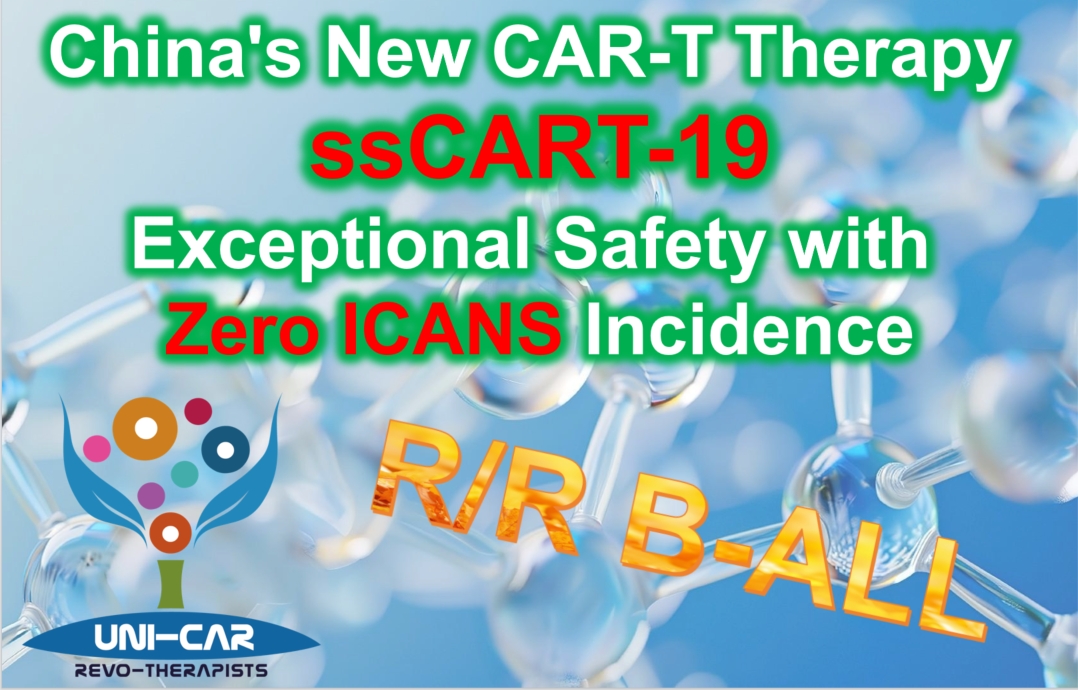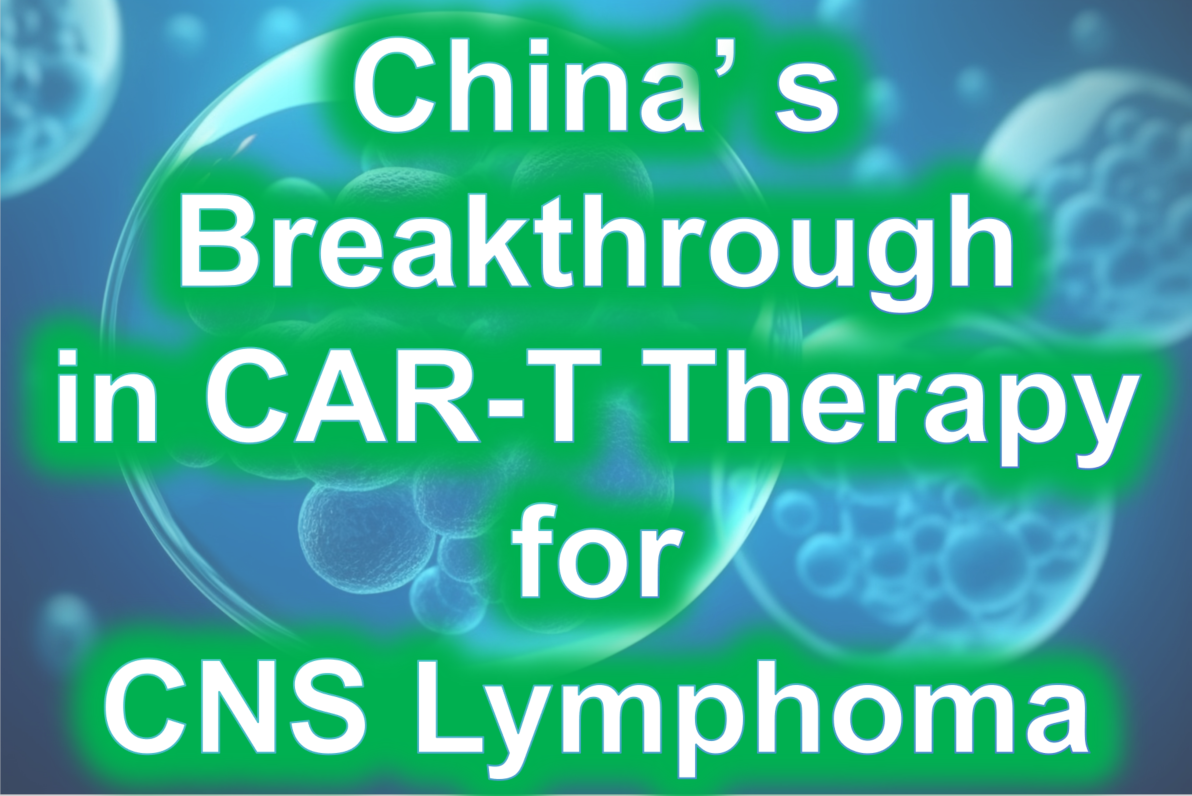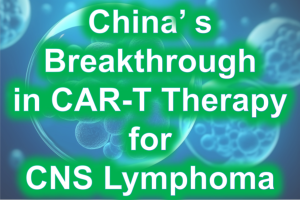Warning: Trying to access array offset on value of type bool in /www/wwwroot/www.medtourcn.com/wp-content/themes/medical-directory/framework/theme/medicaldirectory-image.php on line 78
Warning: Trying to access array offset on value of type bool in /www/wwwroot/www.medtourcn.com/wp-content/themes/medical-directory/framework/theme/medicaldirectory-image.php on line 79

APBMT 2024丨Global Breakthrough of Chinese CAR-T Therapy: New Advances in the Treatment of Central Nervous System Lymphoma (CNSL)
### APBMT 2024丨Global Breakthrough of Chinese CAR-T Therapy: New Advances in the Treatment of Central Nervous System Lymphoma (CNSL)

CNSL
#CAR-T #CNSL #ASCT #APBMT2024 #CARTtherapy #CentralNervousSystemLymphoma #Lymphoma #RRCNSL #APBMT
In the treatment of relapsed or refractory central nervous system lymphoma (R/R CNSL), Chinese CAR-T therapy is pioneering new directions worldwide. Conventional treatments for this disease have shown limited effectiveness, particularly when autologous stem cell transplantation (ASCT) fails, leaving patients facing the dual challenges of relapse and drug resistance. However, recent research from a team of Chinese medical experts has demonstrated that CAR-T therapy shows remarkable efficacy in patients with R/R CNSL, bringing hope to the global fight against central nervous system tumors.
### CAR-T Therapy for ASCT-Failed Patients: Breakthroughs in Safety and Efficacy
At the 29th Annual Congress of the Asia-Pacific Blood and Marrow Transplantation Group (APBMT 2024), a team of Chinese medical experts shared their research results. CAR-T therapy was administered to 11 patients with R/R CNSL who had previously failed ASCT. By using individualized chemotherapy regimens to reduce tumor burden as a bridge to CAR-T therapy, they achieved a 3-month objective response rate (ORR) of 100%, and a 1-year progression-free survival (PFS) rate close to 90%. Most notably, in terms of safety, no patients experienced grade 3 or higher cytokine release syndrome (CRS) or immune effector cell-associated neurotoxicity syndrome (ICANS), making the treatment more manageable.
### Facing Challenges and Exploring Future Directions
Although ASCT has been regarded as a consolidative treatment strategy for CNSL, some patients still relapse post-transplant and develop resistance to chemotherapy. Dr. Hu Kai’s team’s research shows that CAR-T therapy remains highly effective and safe for ASCT-failed CNSL patients, offering new hope for patients with chemotherapy resistance. However, to further optimize CAR-T applications, the Chinese medical team continues to explore more individualized approaches, particularly in areas such as timing of treatment, reducing intracranial tumor burden, and improving overall efficacy.
### Research Data Supporting the Efficacy of Chinese CAR-T Therapy
The study included 11 patients with an average age of 58, all of whom had parenchymal brain involvement and received CAR-T therapy following ASCT failure. Post-treatment data further confirmed the efficacy and safety of Chinese CAR-T therapy: the 3-month complete remission rate (CRR) was 100%, and the 1-year PFS rate reached 87.5%. By combining tumor-reducing chemotherapy with CAR-T cell therapy, the Chinese medical team successfully extended patients’ progression-free survival time and overall survival, highlighting the tremendous potential of Chinese CAR-T therapy in treating R/R CNSL.
### Conclusion
This innovative study showcases China’s cutting-edge advancements in CAR-T therapy, especially in high-risk CNSL patients. The efforts of the Chinese medical team not only provide better treatment options for CNSL patients globally but also demonstrate China’s leadership in the global CAR-T research arena.
🎉🎉To assess whether the condition is suitable for CAR-T therapy, you can submit pathology reports, treatment history, and discharge summaries to the Medical Department of <Advanced Medicine in China> for preliminary evaluation!
WhatsApp: Https://wa.me/+8613717959070
Email: doctor.huang@globecancer.com
#CancerTreatment #ChinaMedicalResearch #Immunotherapy #OncologyBreakthrough
Warning: Trying to access array offset on value of type bool in /www/wwwroot/www.medtourcn.com/wp-content/themes/medical-directory/framework/theme/medicaldirectory-image.php on line 78
Warning: Trying to access array offset on value of type bool in /www/wwwroot/www.medtourcn.com/wp-content/themes/medical-directory/framework/theme/medicaldirectory-image.php on line 79

China’s New CAR-T Therapy ssCART-19: Exceptional Safety with Zero ICANS Incidence
China’s New CAR-T Therapy ssCART-19: Exceptional Safety with Zero ICANS Incidence

CARTTherapy
#ssCART19 #CAR_T #CART #ALL #ICANS #CNSL #CARTTherapy
CAR-T therapy has reached another breakthrough with the introduction of ssCART-19, a new treatment that leverages IL-6 gene silencing technology to significantly reduce side effects, particularly when treating relapsed/refractory acute lymphoblastic leukemia (r/r ALL). Unlike traditional CAR-T therapies, ssCART-19 drastically lowers the risks of severe cytokine release syndrome (CRS) and immune effector cell-associated neurotoxicity syndrome (ICANS).
In the latest clinical trials, ssCART-19 demonstrated outstanding safety, with no patients experiencing ICANS, marking a milestone in CAR-T therapy safety. Among the 17 patients treated, 58.8% showed a significant increase in cell counts, and no cases of Grade 4 or higher CRS were reported. Additionally, ssCART-19 achieved an overall response rate (ORR) of 87.5% within three months, with nearly 63% of patients reaching complete remission.
The latest research also highlights that ssCART-19 outperforms traditional CAR-T products (cCART-19) in both safety and efficacy. Compared to conventional therapies, ssCART-19 significantly reduced the incidence of severe CRS, neutropenia, and ICANS, achieving an ORR of 91.5%. With these impressive results, ssCART-19 is expected to become a groundbreaking option for treating r/r ALL, offering new hope, especially for patients with central nervous system leukemia (CNSL).
Developed by a Chinese biopharmaceutical company, ssCART-19 has gained widespread recognition on the international stage, receiving Orphan Drug designation from the U.S. FDA and being listed as a breakthrough therapy in China. ssCART-19 offers a new treatment option for patients previously excluded from CAR-T therapy, greatly enhancing their chances of survival.
Stay tuned for more updates on how ssCART-19 is transforming cancer immunotherapy.

 To assess whether the condition is suitable for clinic therapy, you can submit Advanced Medicine in China for preliminary evaluation!
To assess whether the condition is suitable for clinic therapy, you can submit Advanced Medicine in China for preliminary evaluation!
WhatsApp: +8613717959070
Https://wa.me/+8613717959070
Email: doctor.huang@globecancer.com
#CART #CancerTreatment #Leukemia #BreakthroughTherapy #InnovativeMedicine #Immunotherapy #CancerResearch
Warning: Trying to access array offset on value of type bool in /www/wwwroot/www.medtourcn.com/wp-content/themes/medical-directory/framework/theme/medicaldirectory-image.php on line 78
Warning: Trying to access array offset on value of type bool in /www/wwwroot/www.medtourcn.com/wp-content/themes/medical-directory/framework/theme/medicaldirectory-image.php on line 79

China’s Breakthrough in CAR-T Therapy for CNS Lymphoma
### China’s Breakthrough in CAR-T Therapy for CNS Lymphoma

Lymphoma
